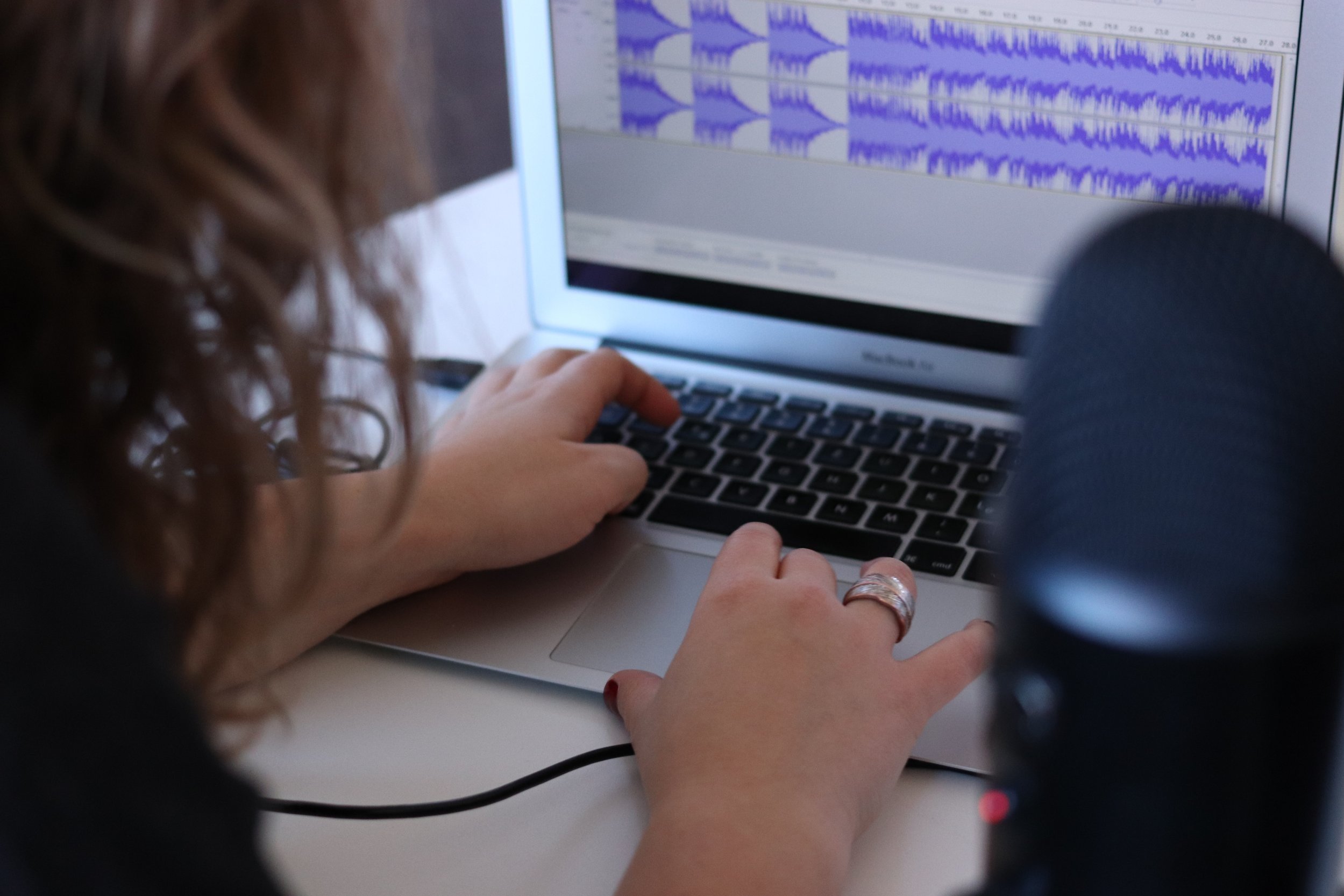Should You Use AI to Create Your Podcast?
The promise of artificial intelligence (AI) was – and is – transformative. But though AI is good at performing very specific tasks, I would not use AI to create your podcast.
The simple reason is because we need to connect to other humans. Podcasting allows us to do that. And in fact, your audience wants to connect to YOU, not a robot.
With that said, we do use AI for some tasks. Does it do a good job? Yes. Is it perfect? No. Each task we use AI for still requires a human touch.
We use AI for two tasks in podcast production
AI is pretty good at transcription
AI transcription is much better than it was just a few years ago. Today, an AI transcript is around 90% accurate. We take care of that remaining 10% and make corrections manually.
Recordings with a lot of background noise or podcast guests with heavy accents are especially tricky for AI. If you use an online transcription service, you will be warned ahead of time that noisy backgrounds and heavy accents will likely be more difficult to transcribe and will be less accurate. And indeed, these require far more intervention from a human.
AI does a pretty decent job with audio processing
It is still absolutely better to record audio properly from the start. However, when we receive garbage audio (typically recorded on a smartphone or with a laptop mic), AI is vastly better at improving it than other tools or algorithms available to us.
Two typical tools of a modern audio engineer are noise and reverb reduction. First, I de-noise and de-reverb using my ears. Only then do I hand it over to AI to make it sound better.
Do not trust AI for either of these tasks. AI will make thin recordings sound more robust like you would get from a professional microphone. Even then, you need a human engineer to mold the AI-processed audio and make it more palatable for your audience.
Will it be perfect? No. Audio engineers used to say, “Crap in, crap out”. But now, AI processing allows a bit more leeway. It’s more like, “Crap in, not so bad out”. Your audio won’t be studio quality, but it will sound a lot better.
Four ways NOT to use AI to create your podcast
AI should not advise you on equipment
The internet is littered with audio equipment vendors pushing low-ish cost USB mics and other equipment to produce podcasts. Because tools like ChatGPT are essentially search engines, any recommendations will be pulled from existing content.
Are the recommendations any good? Well, if they’re coming from human beings who have sales quotas to meet, probably not.
As professional audio engineers, we know what the best podcast equipment is, because we use it every day. Our recommendations are dramatically different than what most “professionals” will tell you.
AI has no idea what a good podcast recording requires
When it comes to recording a podcast, AI cannot do what a human can do. If you’re using a so-called “done for you” podcasting service, you will be reminded to mute your cell phone. But will it ask you to avoid rooms with tiled surfaces and vaulted ceilings? Will it remind you not to ruffle papers or type on your computer keyboard while speaking?
If you’re going to record a podcast that took months to schedule, you want to make sure it is recorded properly. Recording a podcast on your own and sending it to us for editing will require a lot of time (and be expensive) to make it sound just OK.
When recording, a professional audio engineer should listen along to make sure everyone sounds their best. Also, have a professional greet your guests and hold their hand through mic placement and sound check. This helps put your guests at ease for a relaxed conversation.
Technically, AI can edit audio – but it won’t sound natural
Do not trust AI to edit audio. A podcast edited by AI versus by a human will sound vastly different.
If you use a “done for you” podcasting service, it will probably ask you to first edit the transcript and remove any passages you don’t want to keep. Then it’ll remove all of the ‘um’s and ‘like’s.
Hundreds (if not thousands) of edits later, you’ll have a terrible sounding podcast that is choppy, poorly paced, and so distracting your audience will completely miss your message.
We do so much work behind the scenes to make each podcast episode sound natural and professional. We delete all the ‘um’s and ‘like’s with remarkable care, so every edit is seamless. And we adjust the pacing, so it flows smoothly and doesn’t jar the ear.
Take a listen to this podcast recording I made a couple of years ago. Can you tell that I made 28 edits to it?
Robots are not voiceover artists
Never let AI voice your podcast introduction, closing, or any kind of script. Some things should just remain human.
AI can be a podcast helper, not a podcast producer
Though it terrifies me that AI can mimic humans online, the technology is useful. But as I wrote above, even the tasks it can help with still require a human babysitter.
If you’d like to work with a professional podcast production team that will work alongside you to create high-quality, impactful podcasts for your organization or clients, please email us at info@volubilitypodcasting.com.

